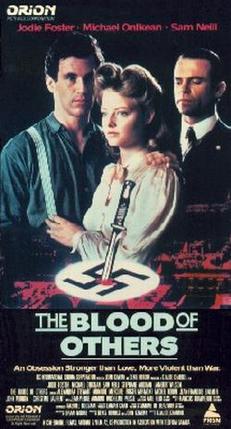Plot
In Nazi occupied France, Jean Blomart sits by a bed in which his lover Hélène lies dying. Through a series of flashbacks, we learn about both characters and their relationship to each other. As a young man filled with guilt about his privileged middle-class life, Jean joins the Communist Party and breaks from his family, determined to make his own way in life. After the death of a friend in a political protest, for which he feels guilty, Jean quits the Party and concentrates on trade union activities. Hélène is a young designer who works in her family's confectionery shop and is dissatisfied with her conventional romance with her fiance Paul. She contrives to meet Jean, and although he initially rejects her, they form a relationship after she has an abortion following a reckless liaison with another man. Jean tells Hélène he loves her even though he believes he does not. He proposes to her and she accepts.
When France enters World War II, Jean, conceding the need for violent conflict to effect change, becomes a soldier. Hélène intervenes against his will to arrange a safe posting for him. Angry with her, Jean breaks their relationship. As the German forces advance towards Paris, Hélène flees and witnesses the suffering of other refugees. Returning to Paris, she briefly takes up with a German who could advance her career, but soon sees what her countrymen are suffering. She also witnesses the roundup of Jews. Securing the safety of her Jewish friend Yvonne leads Hélène back to Jean, who has become a leader in a Resistance group. She is moved to join the group. Jean has reconnected with his father with the common goal to liberate France from Germany. His mother, however, is less impressed by the lives lost to the Resistance.
Hélène is shot in a resistance activity and during Jean's night vigil at her side, he examines his love for Hélène and the wider consequences of his actions. As morning dawns, Hélène dies and Jean decides to continue with acts of resistance.
This page is based on this
Wikipedia article Text is available under the
CC BY-SA 4.0 license; additional terms may apply.
Images, videos and audio are available under their respective licenses.
